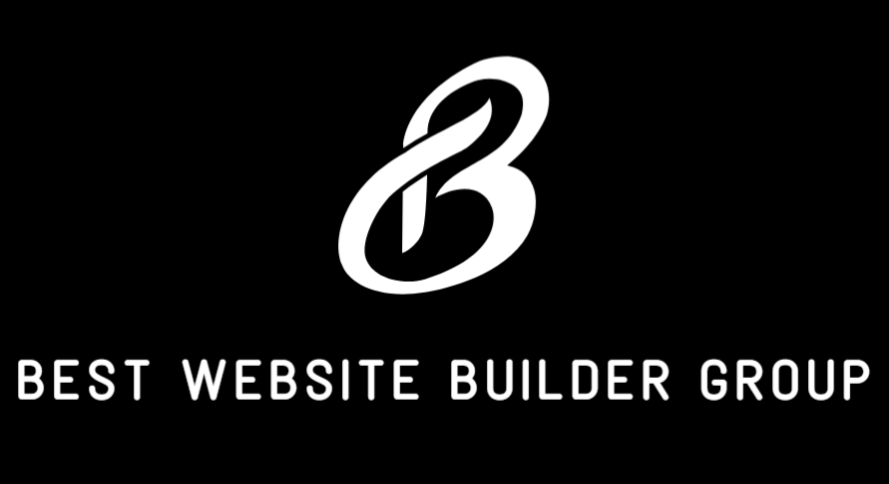As businesses continue to compete for attention online, many wonder, what is paid search marketing? Paid search marketing is a form of digital advertising where companies pay to have their ads appear on search engine results pages. These ads target users who are actively searching for specific products or services. Unlike traditional marketing, which relies on broad exposure, paid search focuses on precision. It connects your business with people who are already showing intent to buy, helping you reach potential customers at the perfect moment.
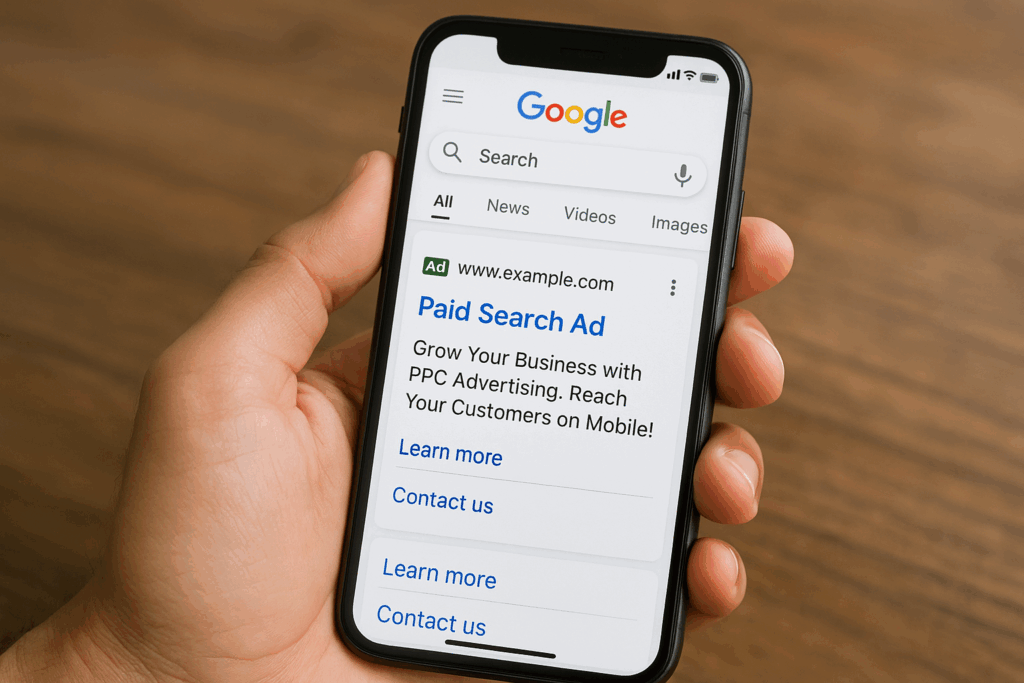
Concept of Paid Search Marketing
At its core, what is paid search marketing refers to the process of purchasing ad placements on search engines like Google or Bing. When a user types a keyword, paid ads appear above or beside organic results. Advertisers only pay when someone clicks on their ad, which is why it’s also known as pay-per-click or PPC advertising. According to Google Search Central, ad quality, keyword relevance, and landing page experience all influence which ads appear. This system allows businesses to control costs while maintaining visibility for important search terms.
How Paid Search Differs from Organic Marketing
Organic marketing, including search engine optimization, focuses on earning visibility through content and credibility over time. Paid search marketing, on the other hand, delivers immediate visibility by placing your ads at the top of search results. Both serve essential roles in digital marketing. While SEO builds long-term trust, paid search provides fast traffic and measurable conversions. Many businesses combine the two through integrated SEO Services and advertising strategies, ensuring both short-term impact and long-term growth.
The Role of Keywords in Paid Search
Keywords form the foundation of paid search marketing. Advertisers bid on words or phrases that customers use when searching for specific products. When those terms are entered, search engines display the most relevant ads based on bid amount and quality. Choosing the right keywords requires research and analysis. Overly broad terms can waste budget, while precise, location-based phrases can deliver higher-quality leads. A well-researched keyword strategy ensures your campaign attracts the right audience while keeping costs efficient.
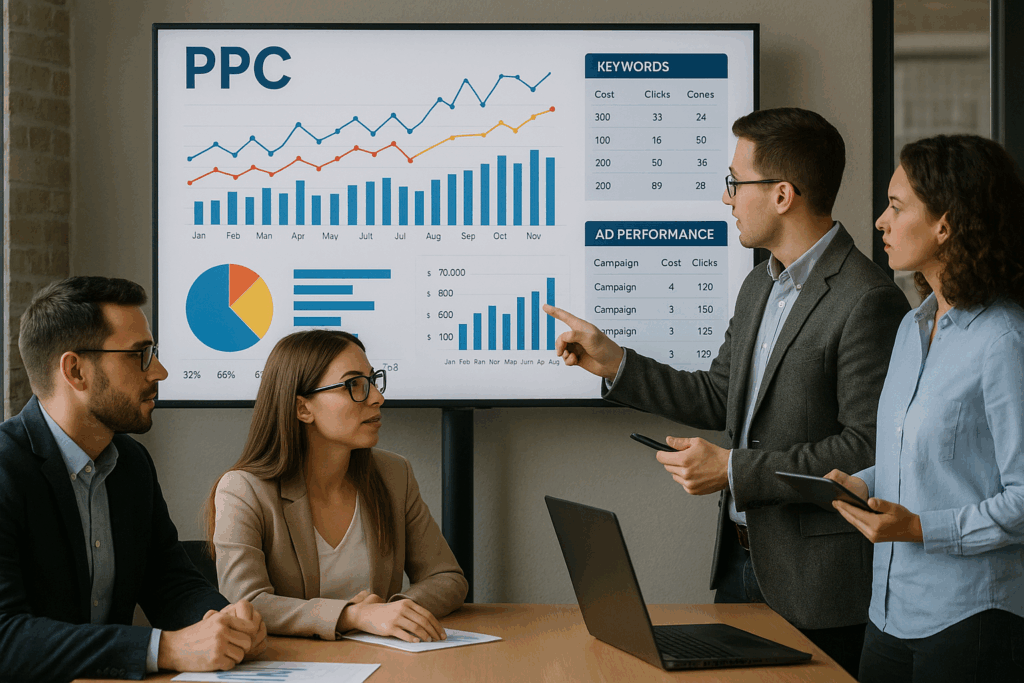
How Ad Auctions Work
Search engines use real-time auctions to determine which ads appear and in what order. Every time someone performs a search, the system evaluates all eligible ads based on relevance, bid amount, and quality score. This ensures users see results that are both useful and trustworthy. A strong quality score can help lower cost-per-click and improve placement, allowing smaller businesses to compete effectively. Insights from Statista show that Google Ads accounts for more than 90 percent of global paid search revenue, making it the leading platform for advertisers worldwide.
Designing Effective Paid Search Campaigns
Creating a successful paid search campaign requires thoughtful planning. Every element — from ad copy to landing page design — must work together to convert clicks into customers. Clear headlines, relevant keywords, and strong calls to action are essential for engagement. A seamless user experience after the click is equally important. Businesses that integrate their campaigns with optimized WordPress Website Design often see higher conversion rates, as well-structured sites help capture and retain interest more effectively.
Benefits of Paid Search Marketing
One of the key advantages of paid search marketing is control. Businesses can set daily budgets, pause or adjust campaigns instantly, and target audiences by location, device, or time of day. Results are measurable, allowing advertisers to track performance and return on investment in real time. Data from Forbes notes that companies using paid search see faster growth compared to those relying solely on organic reach. The ability to monitor metrics and adjust strategy makes paid search one of the most adaptable forms of marketing available.
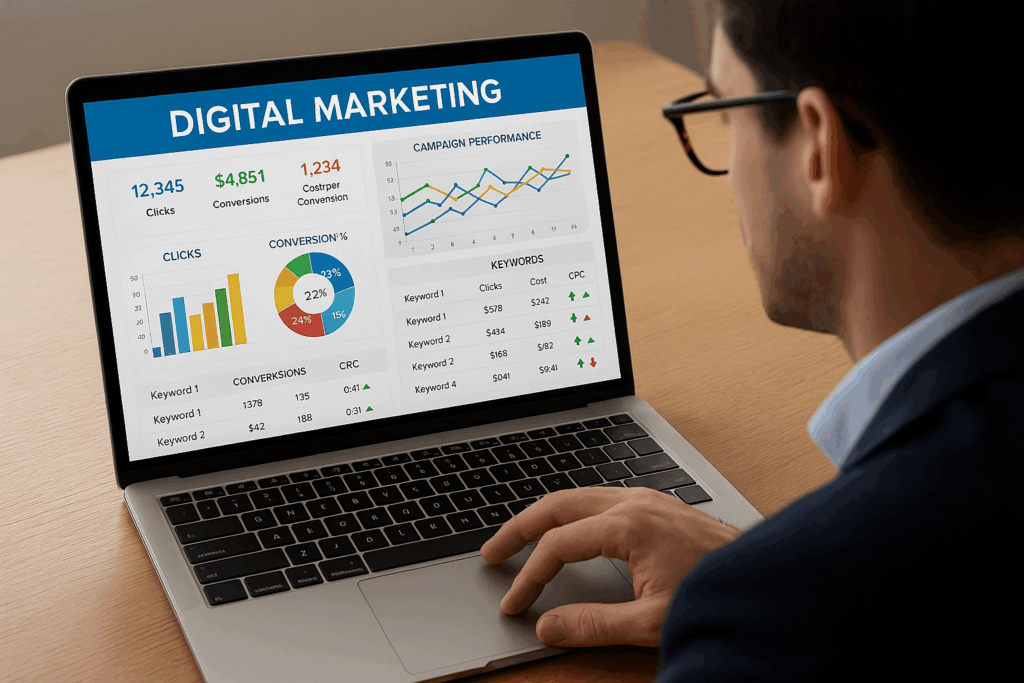
Landing Page Experience and Conversion
A great ad brings users in, but a great landing page converts them. The content, design, and structure of your landing page directly impact campaign performance. Pages should load quickly, be mobile-friendly, and present clear next steps. The W3C emphasizes accessibility and fast response times as best practices for online user experience. Businesses that pair paid campaigns with professional Technical SEO Services ensure that their pages perform well, keeping bounce rates low and conversion rates high.
Targeting and Remarketing Strategies
Paid search marketing offers precise targeting options that allow advertisers to reach the right people at the right time. Demographic targeting, location filters, and remarketing help focus budgets where they matter most. Remarketing, in particular, shows ads to users who have already visited your site, encouraging them to return and complete a purchase. According to Harvard Business Review, personalized remarketing can increase conversion rates significantly by maintaining visibility with interested users without overexposure.
Performance Measurement and Analytics
Understanding the data behind your campaigns is essential for success. Metrics such as click-through rate, conversion rate, and cost per acquisition reveal whether your ads are meeting objectives. Monitoring these analytics allows for smarter decision-making and better allocation of budget. Continuous testing and adjustment keep campaigns efficient and competitive. Businesses that track analytics consistently can identify trends, refine ad copy, and enhance targeting over time for steady improvement.

Integrating Paid Search with Other Channels
When done strategically, paid search marketing integrates seamlessly with other digital marketing efforts. Combining it with email marketing, social media, and SEO creates a unified brand experience. Paid search can amplify visibility for new campaigns while organic content sustains long-term engagement. For example, an SEO-optimized blog can attract steady traffic while a paid campaign promotes seasonal offers. Companies that maintain consistent Website Maintenance ensure that both organic and paid efforts deliver users to a fast, reliable, and secure site.
Challenges in Paid Search Marketing
Despite its effectiveness, paid search marketing can be competitive and costly without proper management. Poor targeting, low-quality landing pages, or neglected optimization often lead to wasted ad spend. The key lies in maintaining ongoing testing and analysis. Businesses that rely on experienced professionals avoid these pitfalls and achieve better long-term results. Managing campaigns strategically turns paid search into a consistent source of measurable growth rather than a short-term expense.
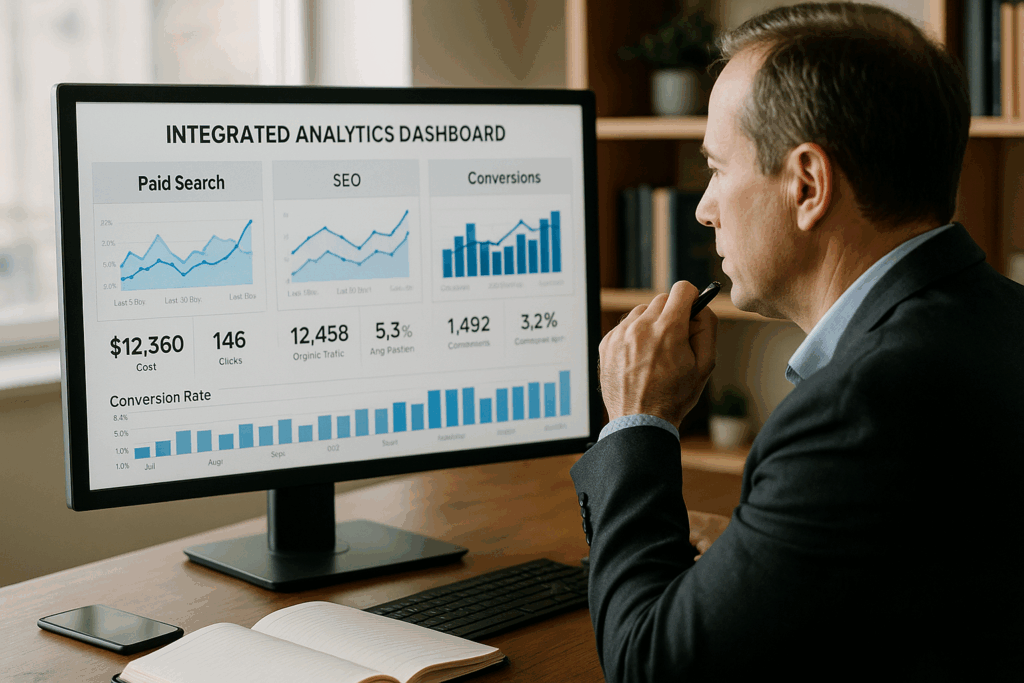
Conclusion
The question what is paid search marketing points to one of the most effective tools for generating fast, measurable business growth. Paid search connects your brand to the customers actively looking for your products or services at the moment they need them. When executed with precision, it delivers targeted visibility, valuable insights, and scalable results. Best Website Builder Group helps businesses integrate paid search marketing with SEO, web design, and analytics to create complete digital strategies that build traffic, trust, and long-term success.
